Results
-
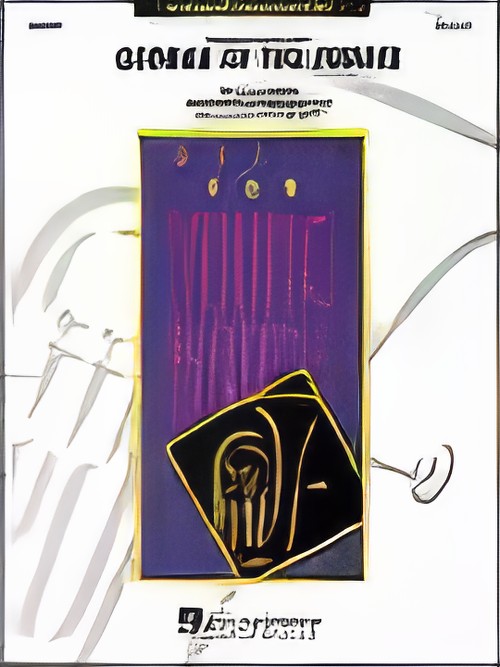 £42.50
£42.50Geoge of the Jungle (Concert Band - Score and Parts) - Allman & Worth - Bocook, Jay
Not only is he a cool character with a hit movie, but he's got a great theme! This clever version for band features timpani throughout (cross-cued) and gives your band a great novelty spot for most any concert.
Estimated dispatch 7-14 working days
-
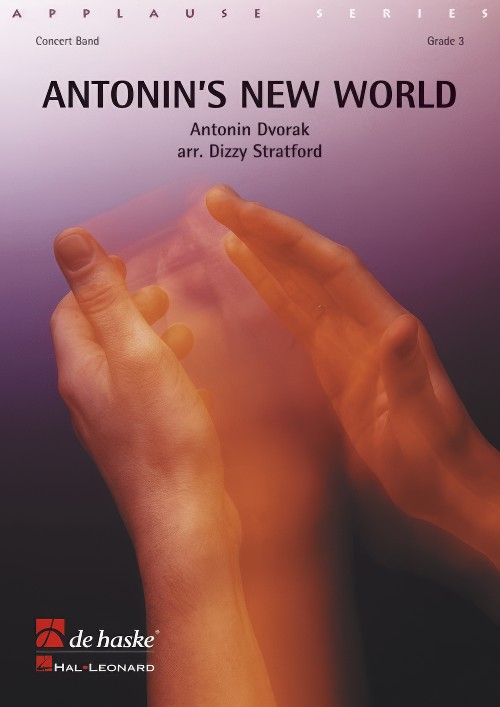 £94.99
£94.99Antonin's New World (Triangle Solo with Concert Band - Score and Parts) - Dvorak, Antonin - Stratford, Dizzy
Antonin's New World is an excellent piece of musical theatre featuring a comedy act for triangle soloist and band. The music itself does not sound comical, being based on Anton Dvorak's Symphony in E Minor ('From the New World'), but the right mix of seriousness and humour brings a surprising effect. With a bit of acting talent from your triangle soloist, this interpretation of the well known classical melody will be a major hit. Whether you choose Antonin's New World as a "triangle solo" novelty piece or simply as a delightful adaptation of Dvorak's immensely popular Ninth Symphony, both the band and the audience will love it!Duration: 4.15
Estimated dispatch 7-14 working days
-
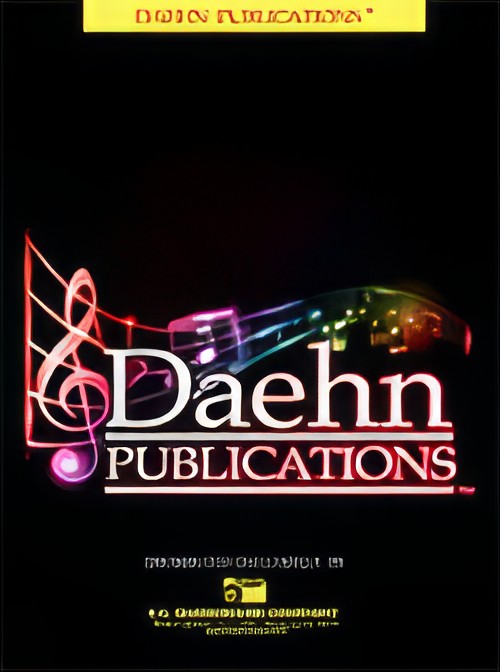 £60.00
£60.00Derbyshire Cavalry Marches (Concert Band - Score and Parts) - Haydn, Joseph - Hash & Walters
Haydn wrote these marches during his second trip to London in 1794-95. The original autograph is titled "Two Marches Composed by J. Haydn for Sir Henry Harpur... to the Volunteer Cavalry of Derbyshire, embodied in the year 1794". Scored for the typical military band of the time, the instrumentation included a trumpet, two horns, two clarinet, two bassoons and a serpent (a curved bass instrument played with a cupped mouthpiece). Percussion parts would have been added by the regimental drum major and played by soldiers, not regular musicians. Due to a lack of printed marching books at the time, selection had to be short to facilitate easier memorisation. In this arrangement for modern concert band, the marches have been transposed from the original keys to Bb and F Major. Percussion parts have also been added by the arrangers and can be used at the director's discretion. Though these marches have been scored with the intermediate level band in mind, the integrity of the originals have been maintained, making them of interest to musicians and music students alike, at all levels.
Estimated dispatch 7-14 working days
-
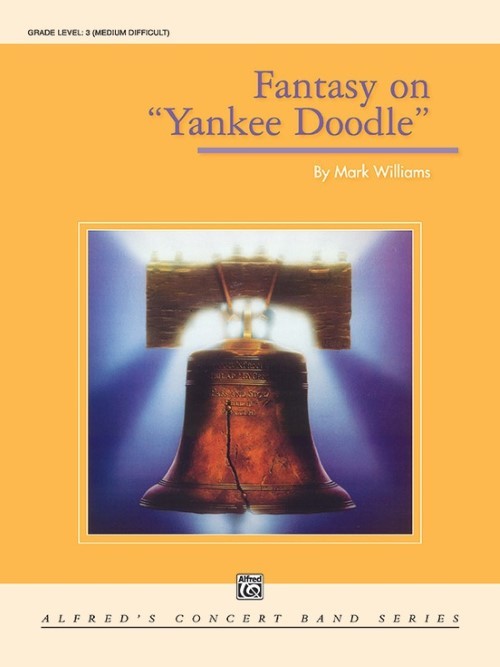 £87.50
£87.50Fantasy on Yankee Doodle (Concert Band - Score and Parts) - Williams, Mark
This is a refreshing and exciting work! Yankee Doodle seems like such a simple melody, but it's amazing how well Mark Williams develops it using a set of variations. Although opened by a humorous statement of the theme by solo tuba, you'll soon find that this is not a novelty piece . . . the varied styles and moods are displayed in well-written music that is perfectly held together by the original theme. Excellent! Duration: 6.15
Estimated dispatch 7-14 working days
-
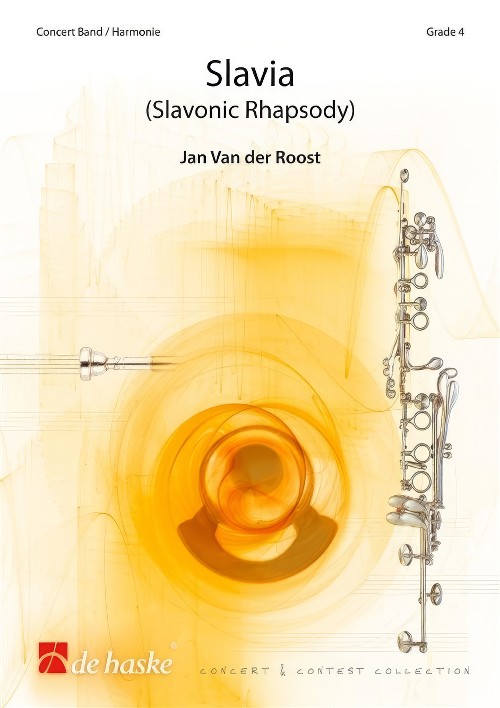 £159.99
£159.99Slavia (Slavonic Rhapsody) (Concert Band - Score and Parts) - Van der Roost, Jan
Jan Van der Roost originally composed each and every note of 'Slavia' (as in case in 'Puszta', 'Rikudim' and 'A Highland Rhapsody'). Consequently, 'Slavia' does not contain any arrangement of existing tunes, but is an original composition 'in the style of...'. The introduction has an ABA structure and exposes a broad melodic line. Following a short cadenza, there is a second movement in a fast and fiery tempo. The tempi increase, gradually culminating in an exciting final climax, making this 'Slavonic Rhapsody' a spell-binding experience to the very last note.Duration: 8:00
Estimated dispatch 7-14 working days
-
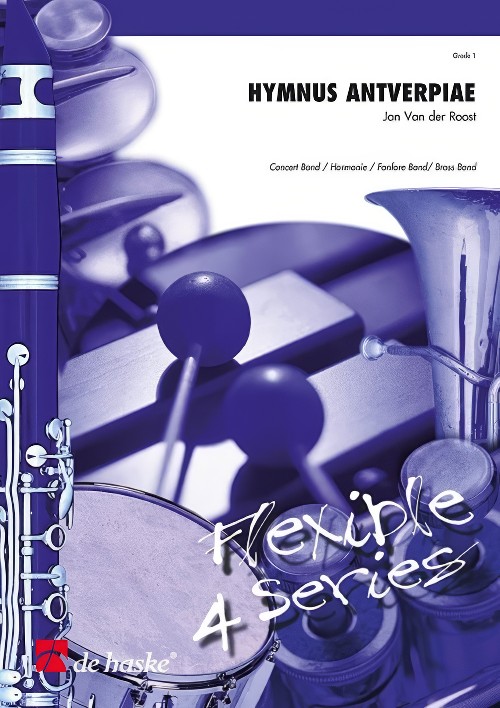 £76.99
£76.99Hymnus Antverpiae (Flexible Ensemble - Score and Parts) - Van der Roost, Jan
This hymn was commissioned by "Antwerpen 93". And this city, on the banks of the river Schelde has been nominated "Cultural Capital of Europe" for 1993. The work-group "animatie" took the initiative and commissioned a hymn, which -as the finale to a grand open-air event on 27th March- was premired by hundreds of musicians from all over Europe. Philippe Langlet (France) was the conductor at this majestic occasion. Musically speaking the piece can no doubt be labelled easy. Indeed it is meant to represent a hymn, playable by all in different instrumental combinations. Consequently a variable instrumentation was chosen and a type of music, which by native is easily accessible and uncomplicated. The conductor is free -in the instrumentation- to score this piece according to his own taste. It is perhaps advisable to use the sharp brass in the forte parts, in order to make the range in the sound of the orchestra as colourful as possible. The percussion parts are not absolutely essential, so that the hymn can also be performed without percussion.Duration: 4:00
Estimated dispatch 7-14 working days
-
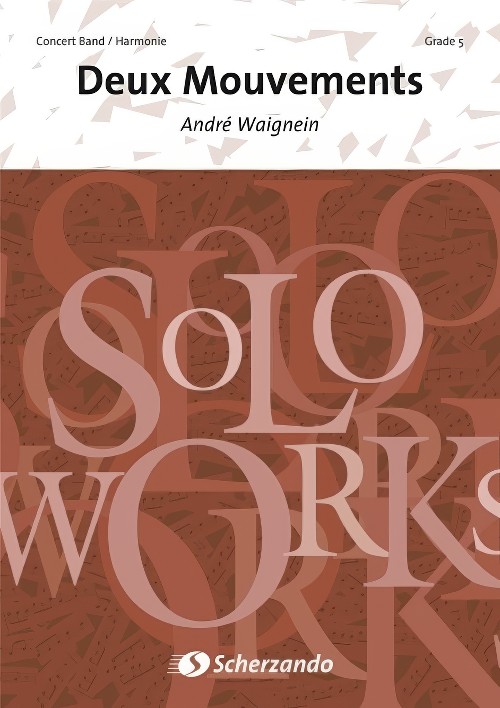 £154.99
£154.99Deux Mouvements (Alto Saxophone Solo with Concert Band - Score and Parts) - Waignein, Andre
Early in 1989 Jean Baily, director of the Royal Conservatoire in Bruxelles, asked his very close friend Andre Waignein to compose a piece which could be performed by the conservatoire's saxophone class. Andre Waignein was readily agreeable. Not only was his father a saxophone player, but himself felt strongly attracted to the instrument and he was further encouraged into accepting the commission by his friend Alain Crepin, saxophone teacher at the Bruxelles Conservatoire.The piece he composed consists of two movements, hence the title. An elegy is expressed by means of a melody which is full with pronounced magnanimity, full of spectacular musical freedom enabling the soloist to express himself to the full. In this movement the melodic element is of the utmost importance.The capriccio, the second movement is musically disconcerting. The band's accompaniment is particularly important. Due to the high notes, the soloist brings this capriccio to a close with enthusiastic virtuosity.Duration: 9:15
Estimated dispatch 7-14 working days
-
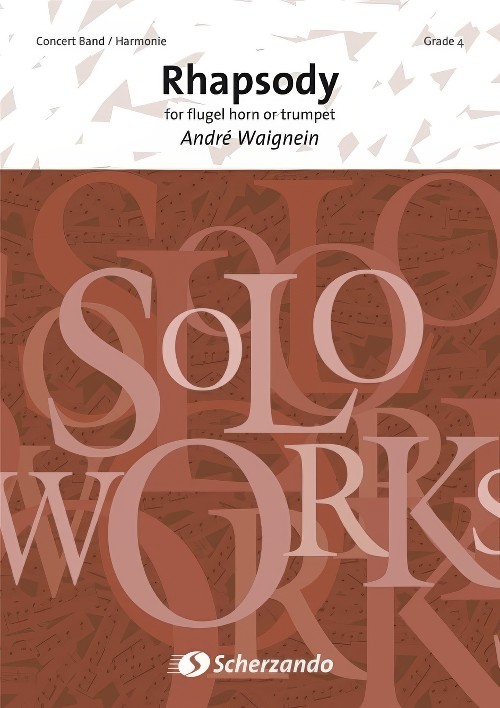 £134.99
£134.99Rhapsody (Flugel Horn or Trumpet Solo with Concert Band - Score and Parts) - Waignein, Andre
As a trumpet player Andre Waignein has composed many pieces for this instrument; extremely electrifying pieces meant for young trumpet-players, and more demanding works for professionals.With his rhapsody Andre Waignein wanted to compose a piece in which spontaneity dominates and in which the virtuosity, sonority and style of the soloist is featured to its maximum. Although the piece is not one of the most difficult, it nevertheless places high musical demands on the soloist. Following an impressive orchestral opening the soloist comes to the fore, with long phrases followed by more dynamic and rhythmic passages. The second movement gives evidence of extreme sensitivity and offers the soloist the opportunity to prove that the trumpet (flugel horn) can be a stirring and emotional instrument. The third movement is the most spectacular. The orchestra actively participates with increasingly delicate interventions. The soloist can display all the possibilities offered to him by his instrument. With a long sostenuto on the trumpet (flugel horn) the beautiful rhapsody ends.Duration: 6:00
Estimated dispatch 7-14 working days
-
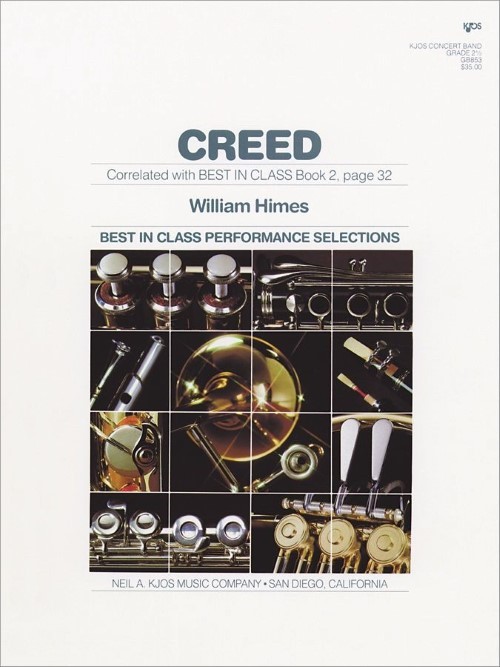 £70.00
£70.00Creed (Concert Band - Score and Parts) - Himes, William
A creed is a statement of belief. This piece, while not literally programmatic, seeks to convey a sense of affirmation and trust, ideals considered to be the basis of humanity. The result is music which is descriptive and atmospheric, conjuring a variety of moods ranging from reflection to exultation.Duration: 4.45
Estimated dispatch 7-14 working days
-
 £76.99
£76.99Discoduction (Concert Band - Score and Parts) - De Haan, Jacob
Jacob de Haan especially composed this piece for the by now well-known C.D. Soli Brass. Not just a C.D. opener, this piece is an excellent concert starter. The title is a combination of the words Introduction and Disco. The composition is made up of a majestic opening, following in a section in disco style based on the same themes.Duration: 1:30
Estimated dispatch 7-14 working days
